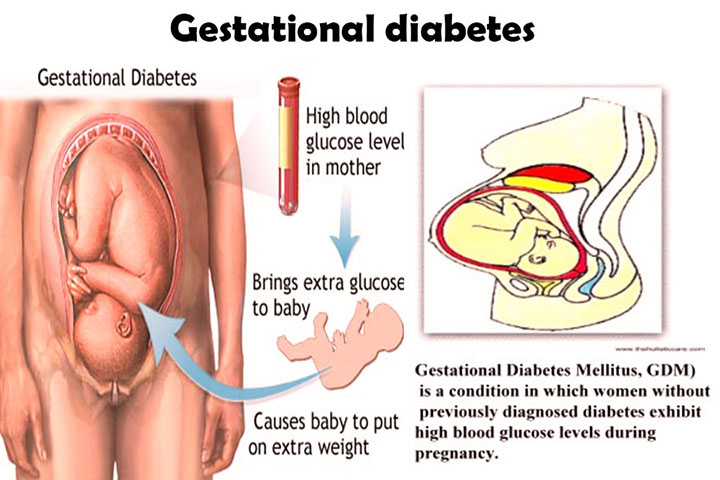Some women may develop glucose intolerance due to hormonal changes that occur during pregnancy and get gestational diabetes. According to various studies, 4% of pregnant women are diagnosed with this type of diabetes. In most cases, these women were not even diabetic before their pregnancy. The good part is, gestational diabetes typically dies out after giving birth.
However, it leaves the patient at a higher risk of developing Type 2 Diabetes later in life. While having gestational diabetes also doesn’t mean your baby will be born with diabetes, without proper treatment and monitoring, the condition becomes potentially high-risk for both the mother and child. Without proper treatment, gestational diabetes can lead to the baby generating too much in the womb and gaining too much weight. Although less likely, this can also result in premature birth.

Source: gestationaldiabetics.com
Who is at Risk of Gestational Diabetes and Type 2 Diabetes?
You are more likely to get gestational diabetes if you are overweight before you get pregnant; your blood sugar levels are high; diabetes runs in the family; or if you had previously had gestational diabetes. During pregnancy, your hormones can lead to a buildup of sugar in the blood. Normally, these hormones can produce enough to handle this buildup, but otherwise, your sugar levels may rise to cause gestational diabetes.
To treat your gestational diabetes, your doctor will need to check your blood sugar levels four or more times a day. They will also do urine tests to check for ketones, which determine whether your diabetes is under control. You must eat a healthy diet that is in line with your doctor’s recommendations and work out regularly. Also, your doctor will track how much weight you gain, especially when pregnant, and let you know if you need to take or other medications for your gestational diabetes.
Could Gestational Diabetes Lead to Type 2 Diabetes?
This type of diabetes can be detected via a glucose tolerance test. Even though the reason is unknown, hormonal changes during pregnancy are the main cause. While the hormones help the baby develop in the womb, they prevent the mother’s body from making or using properly. Additionally, a woman’s risk of developing gestational diabetes is influenced by other factors, like age, weight, family history, and type 2 diabetes.
Type 2 Diabetes Symptoms
Gestational diabetes makes a woman more likely to develop Type 2 diabetes. When you have this type of disease, your body will do a poor job when turning carbohydrates into energy. This causes the sugar to build up in the blood and raise the risk of long-term internal damage over time. This also raises the risk of heart disease and other serious complications.
Women with type 2 diabetes symptoms can experience thirst, dry mouth, and weight gain or loss. As the blood sugar levels get higher, you may experience other symptoms such as fatigue and headaches. In order to ensure that you and your newborn are safe, early detection and quick treatment are necessary. So how can you tell if you have gestational diabetes? Unfortunately, the condition does not always exhibit noticeable symptoms in pregnant women. However, weight gain, excessive hunger and thirst, frequent urination, and recurrent vaginal infections are signs that you should consult with your ob-gyn or physician as soon as possible.
Featured Image Source: Thinkstock/Jovanmandic
Sourced from: everydayhealth.com


